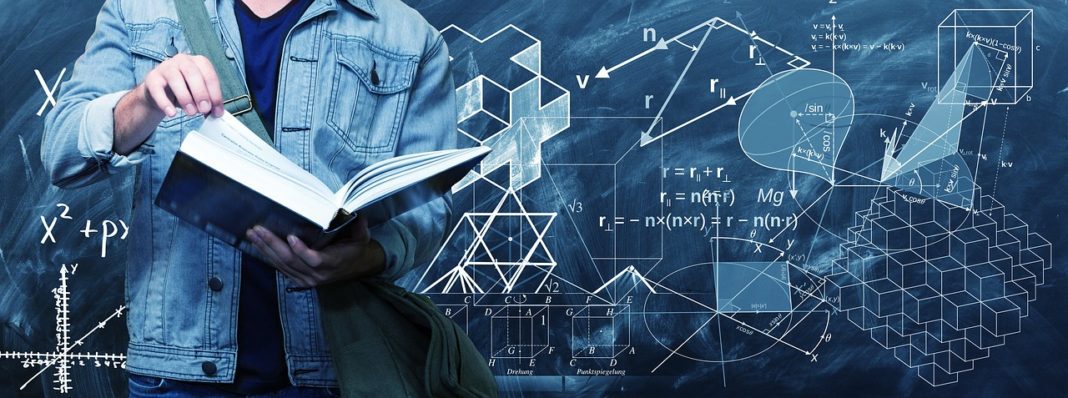The Science Olympiad Foundation (a non-profit organisation established in New Delhi, India) holds Olympiad Exams for students to enhance science, mathematics, general knowledge, beginning computer education, and English language abilities. Olympiad examinations are held on a broad basis for students in grades 1 through 12. Each year, SOF hosts six Olympiad competitions: National Cyber Olympiad (NCO), National Science Olympiad (NSO), International Mathematics Olympiad (IMO), International English Olympiad (IEO). International General Knowledge Olympiad (IGKO), International Company Secretaries Olympiad Olympiad (ICSO). Olympiad Exams serve to assess a student’s lead to possible skills, which might help him survive in order to stay ahead. They encourage students to strive for a better and more in-depth comprehension of universal facts to improve their analytical, logical, and problem-solving abilities. They also highlight areas where there is a deficiency of competency so that adequate training may be offered to develop in that field. They’re ideal for determining a student’s theoretical comprehension of a topic. Students’ problem-solving skills are improved, and they are challenged to think critically.
By assessing a student’s aptitude as well as an understanding of a certain topic, it prepares them for future competitive tests. Students are exposed to a variety of national and international arenas. Instils the value of hard work in kids by encouraging them to study diligently for exams and improve their grades. Olympiads boost students’ school performance by sharpening their learning and thinking processes, allowing them to better absorb the curriculum of the subject.
All schools enrolled with SOF Olympiad get a prospectus containing registration forms for all tests offered by SOF. Schools who have not yet registered may get a document by emailing [email protected]. The school’s organizing instructor produces the students’ roll numbers according to the prospectus’s standards. Just before the due date for submission of forms, a copy of these roll numbers, together with the Students’ Registration Sheet (SRS) and School Registration Form (SRF), is submitted to the Foundation’s office. After the candidate school and students have enrolled, the foundation sends out the question papers. The majority of Olympiad examinations follow the same material as those given in school. The preparation of these tests does not necessitate the use of any extra reference materials. All that is asked of students is that they understand all of the principles and fundamentals. The questions on the Olympiad examinations are not the same as what students study in school. The questions are more difficult and intellectual, requiring students to use a wide range of thinking skills to answer a variety of issues based on concepts and logic.
In Class 10, students should understand the basic principles, as this is an important period in their growth. Because most of the ideas are replicated in class 10, the student must do well in the test to achieve a good result on the board examination boards. Math is one of the most crucial subjects that students are often terrified of. Math demands fundamental abilities and a lot of practice to succeed in an exam. To do well in the exam, one must practise a few questions every day. Because questions may be formulated on any subject, it is critical to practise asking sensible key inquiries.
Try practising the essential Previous Year Paper for IMO Class 10 Maths 2013. Students in class 10 benefit from experiencing these questions since it helps them produce accurate responses and manage their time during exams.
- Students who are studying for Olympiad examinations should begin studying earlier so they’ll have enough time to evaluate. Nobody can complete the full section the day before the exam. As a result, the student must finish the entire course a few weeks before the Olympiad exam. Also, set aside some time to go over the section again.
- Students are recommended to review the curriculum and test pattern before beginning their Olympiad exam preparation. The Olympiad test is held for six distinct topics by the authorities. As a result, students must consult the syllabus for the appropriate course. The official Olympiad exam syllabus is published on the official website. For all topics, a syllabus is supplied for classes I through XII. Students can enhance an idea of the test paper by consulting the exam pattern. Students who want to take the Olympiad test and pass it should look through the topics below.
- Students may have difficulties grasping a certain portion or topic at times. If you find yourself in this scenario, don’t be afraid to seek assistance from an educator, mentor, or tutor. They will rapidly and efficiently explain the subject to them. Students might also enlist the assistance of relatives or friends.
- When it comes to studying for the Olympiad test, time management is essential. Students are encouraged to make the most of every second. The right allocation of time among all subjects/topics will aid in the completion of the complete exam. Improve on the portions that aren’t as strong. Apart from that, the student’s programme should include last-minute preparation to prevent missing anything important before the Olympiad test.
- Experts always recommend solving sample papers since they are meant to offer you a good understanding of the test difficulty level, question types, exam-style, and time limit. Students might improve their ranking by familiarizing themselves with the sample questions. Students’ trust in the exam date was also boosted by sample papers. Try to complete the Olympiad example papers promptly. It is suggested that you review past years’ papers or solve some practice papers. Students may also use Embibe to access free test papers for Olympiad exam preparation.
- Why not use the Internet when there are plenty of online tools available? Students might begin by completing practice examinations and difficult Math questions. If any student is using the internet, however, keep free of distractions.
- Even if they don’t comprehend the questions, they should not be concerned when taking the tests. Keep your cool and go on to the next question. Finish all of the answers before attempting to answer the remaining questions. Consolidate the fundamental notion. Students can answer any question, no matter how difficult, if they comprehend the principles effectively. Another crucial component of preparation is to revise as much as possible. This will aid in the memorization and comprehension of all concepts. Every day, the students must closely adhere to their schedule/plan to allow the concepts clear apparent













